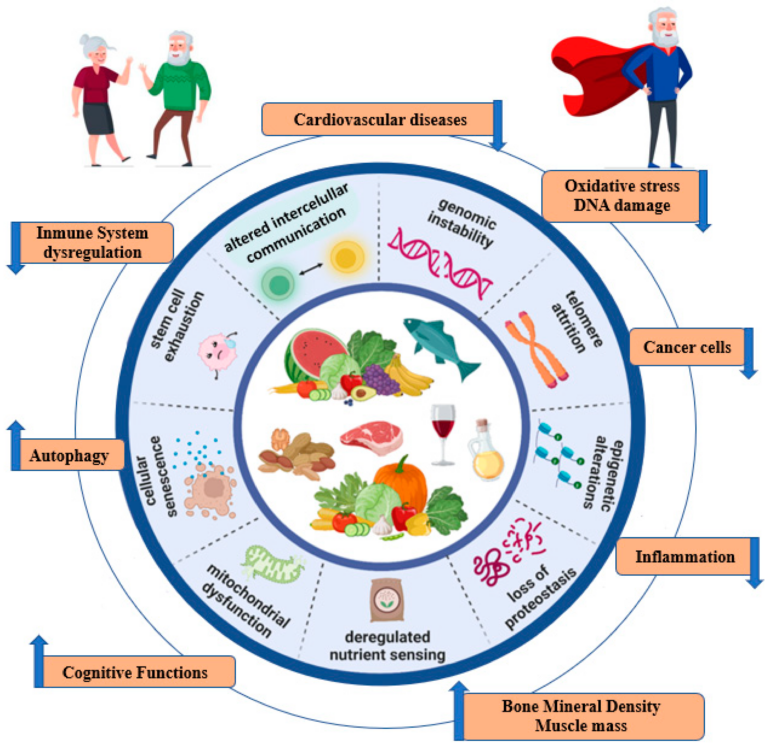As life expectancy increases, the attention and interest in safe and effective lifestyle interventions to promote healthy aging are growing rapidly. One of the elements explored is that of unhealthy diets, with poor nutritional value. Therefore, lifestyle changes which include dietary interventions could promote positive effects, and potentially reduce the risk of developing aging-related diseases.
Previous studies showed that phytonutrients, natural compounds found in vegetables, fruits and berries, support health and lower the risk of age-related conditions such as cardiovascular disease and dementia.
The Mediterranean diet is mainly based on abundant phytonutrients. The Mediterranean diet consists of olive oil as the primary source of fat, fresh fruit, low to moderate amounts of seafood, poultry, dairy products, wine and eggs. Sweets containing sugar or honey and red meat are consumed sparingly. Adhering to this diet could be protective against several conditions.
DailyColors is a dietary supplement designed to mimic the benefits of the Mediterranean diet by providing important nutrients found in fruits, berries, and vegetables. These nutrients, like Quercetin and Anthocyanins, are known for their potential health benefits, particularly in aging.
A collaborative study between the Center for Healthy Brain Aging at King’s and Center for Age-related Medicine, Stavanger University Hospital, Norway, aimed to explore how DailyColors affects certain blood markers linked to aging and related diseases, such as how our cells produce energy, inflammation, and stress in the body.
The study also looked at changes in DNA methylation in saliva, which can provide indicators of biological aging.
Thirty adults, aged 55–80, with a body mass index over 25, participated in the study. Participants took either DailyColors or a placebo for one week, then switched after a break.
During the placebo phase, a blood marker called CD38, which is linked to poor cell function and inflammation, increased. This didn’t happen when participants took DailyColors. There was also a trend showing reduced oxidative stress (a process that can damage cells) after taking the supplement.
“This nutraceutical clinical study highlights the strengths at King’s in academic-industry collaborations, involving researchers from across four continents in nine institutions and two companies.
“This study is the first to show that a novel supplement containing plant compounds found in the Mediterranean diet can alter blood biomarkers and epigenetic profiles that are associated with healthy aging,” says Dr. Richard Siow, Director, Aging Research at King’s (ARK).
In a follow-up study with 26 participants who continued to take DailyColors for a month, the study found changes in the way DNA is marked, which might slow down some of the negative effects of aging. Although the effects observed were minimal, the study suggests that DailyColors could help slow down certain aging processes. However, more extensive studies are needed to confirm these benefits.
The work is published in the journal Antioxidants.
More information:
Joyce Ruifen Chong et al, A Randomised, Double-Blind, Placebo-Controlled, Cross-Over Clinical Trial to Evaluate the Biological Effects and Safety of a Polyphenol Supplement on Healthy Ageing, Antioxidants (2024). DOI: 10.3390/antiox13080995
Provided by
King’s College London
Citation:
Mediterranean diet supplement can affect epigenetics associated with healthy aging (2024, August 23)



